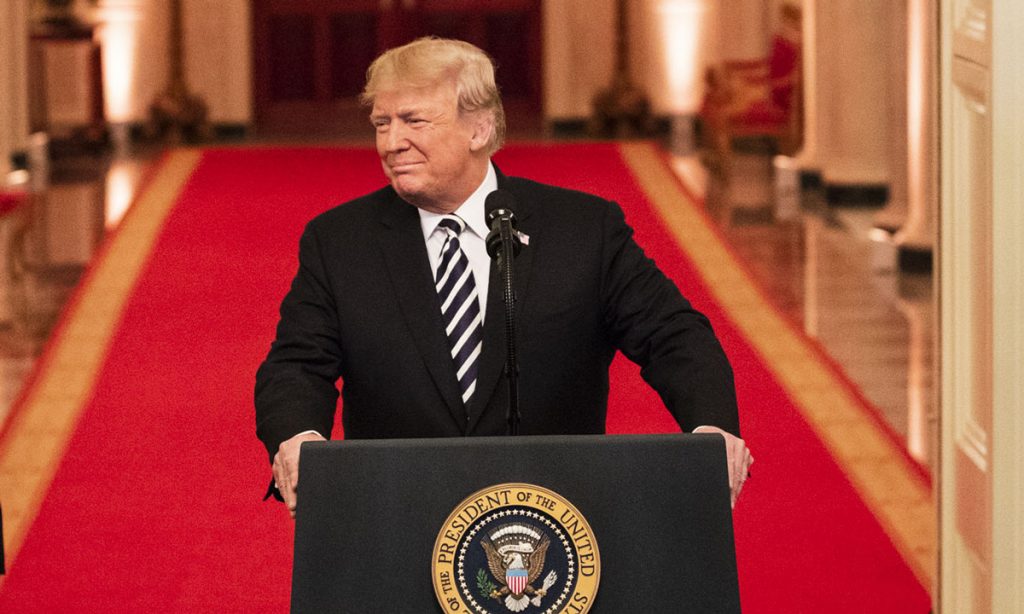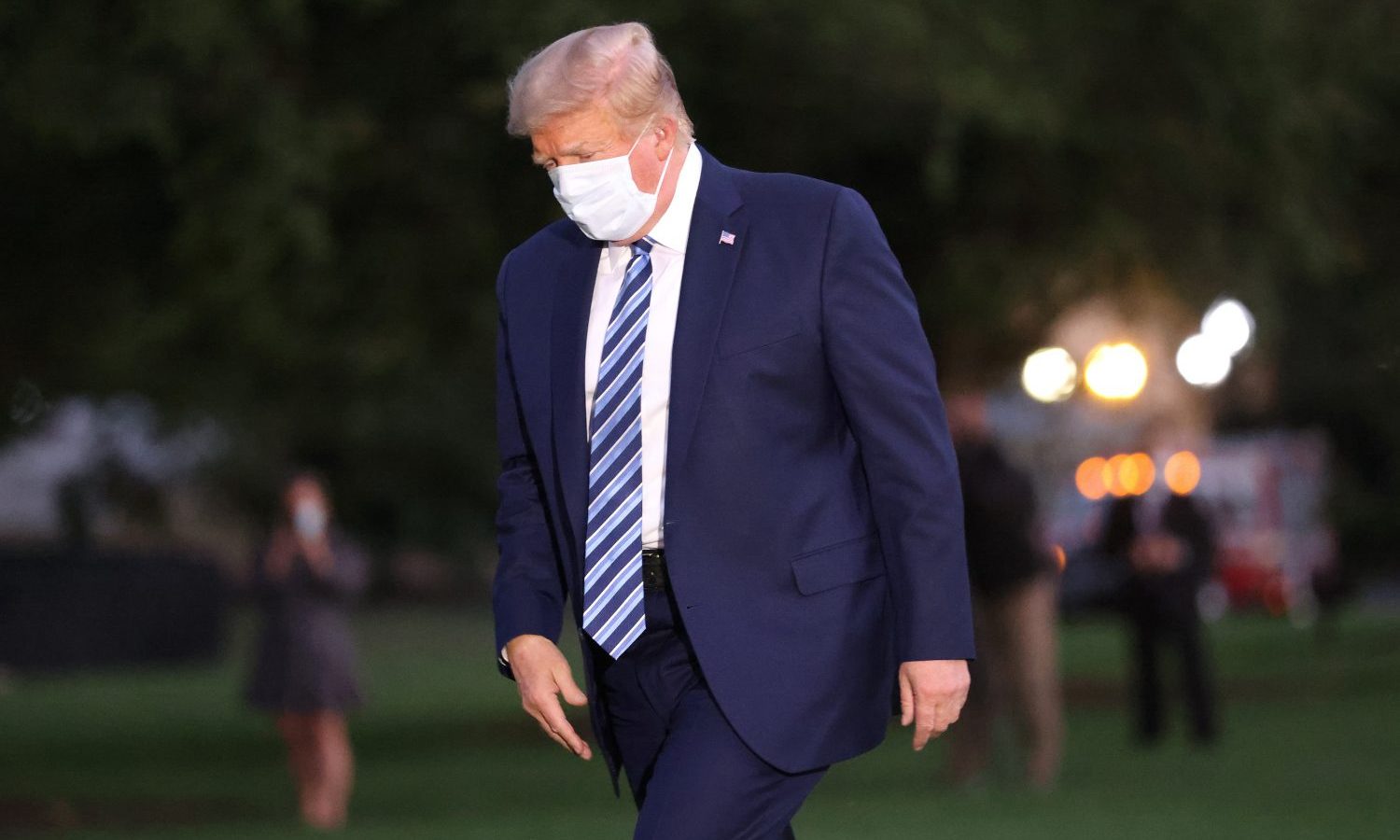With the election less than a month away, President Donald Trump has tested positive for COVID-19. What happens if he gets too sick to run on the November ballot?
With just weeks away until the presidential election, current President Donald Trump has been hit with COVID-19 and he may not be out of the woods. What happens if he can’t run for re-election?
After a three-day stint in Walter Reed Hospital, the president is back at the White House, in presumably good health, even though nobody from his administration will reveal when he last tested negative for coronavirus. In several video statements, the president has made clear that he feels good and that he is looking forward to the elections. But, due to the record of the coronavirus, many are wondering what would happen if Trump were to be unable to serve or run for re-election. The answer is complicated and inconclusive.
“Continuity of government is always in place,” Speaker of the House Nancy Pelosi told MSNBC last Friday, when president Trump was admitted to the hospital. “I always say it’s a relic of the past, but nonetheless, they say we have our job we have to do, and this is what we’ll do.”
RELATED: What Does ‘Inshallah’ Mean And Why Did Biden Say It To Trump?
Both the Constitution and Congress have several plans of succession in place. The Constitution makes it clear that the vice president is next in line of succession after the President, should he or she die in office. “In case of the removal of the president from office or of his death or resignation, the vice president shall become president,” the 25th Amendment states.

The vice president’s role would be a temporary one, taking over the duties of the presidency until the term is through.
If the president is too ill to complete their duties, following the 25th Amendment, he or she could voluntarily designate power to the vice president. Once recovered, the president could regain control with a signed statement.
Things get murky if Trump can’t run for re-election. The Republican National Committee would have to produce a new nominee. At this late in the game, this would be difficult considering that early voting and voting by mail has already begun.
RELATED: Kamala Harris Just Made A Whopper Of A Cannabis Promise
If it’s too late to get a new nominee on ballots (like it is currently), the decision would fall to individual states to decide how to proceed, which is a total mess because most states don’t have any rules for this novel situation.
As Richard L. Hasen, a law professor at the University of California, Irvine, explained to the New York Times, “It would be a question of what each state’s law says or doesn’t say about what happens in this eventuality, and many state laws are just silent on this possibility. So there may be questions about what to do.”
Matters would become even more complicated if Trump were to win, but was deemed unable to serve, leaving many states with no guidelines on how to move forward. Congress would then have to step in and courts would most likely have to get involved.


